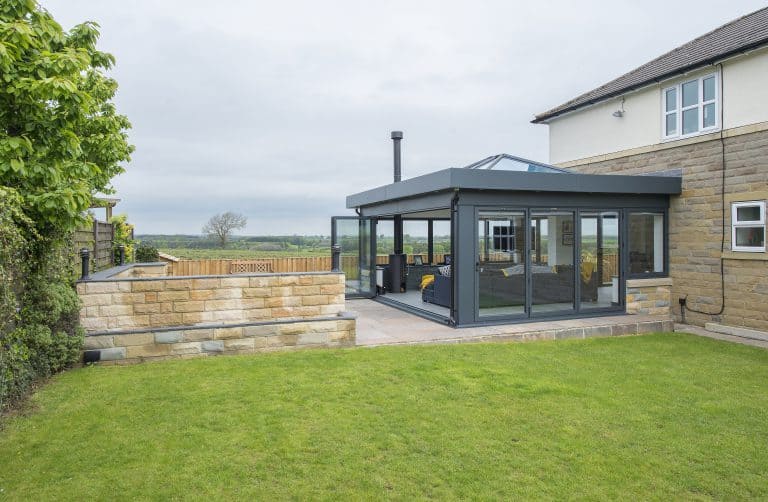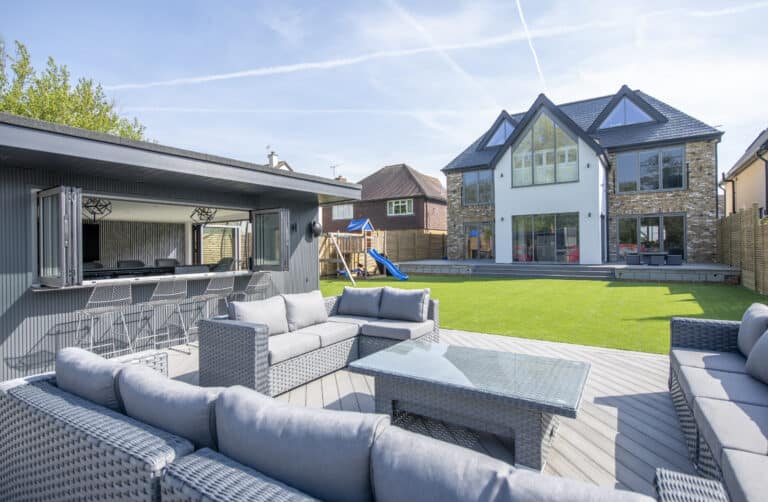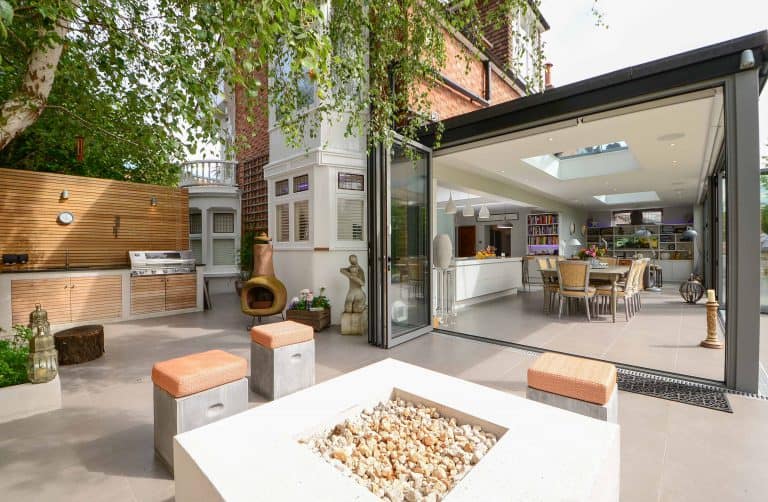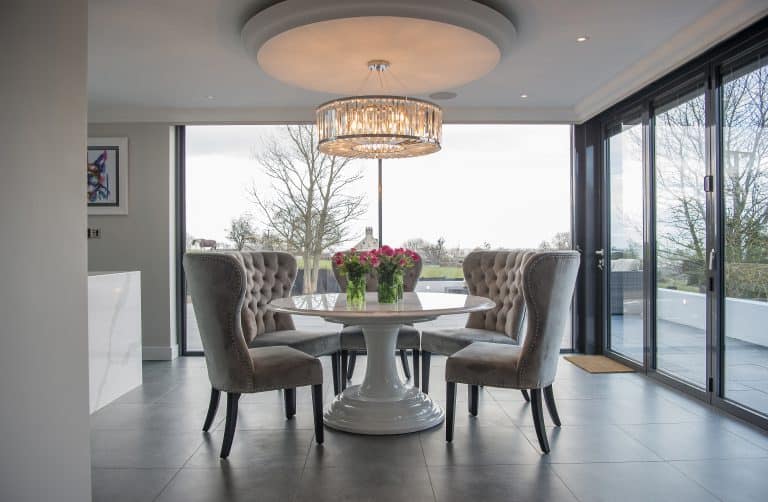What is double glazing and how does it work?
Whether you live in a traditionally styled country cottage or a more contemporary city flat, there’s one key building component that everyone needs to have in their home – a decent set of double-glazed windows.
But given their prevalence as an important selling point when viewing or renovating a house, you might assume that every home in the country comes with double glazing as standard, yet this is not always the case.
So, if you’re living in a home that currently lacks double glazing, or you’re debating upgrading your windows once you’ve moved into your new property, here’s what you need to know about how double glazing works, and the many benefits that come with it.
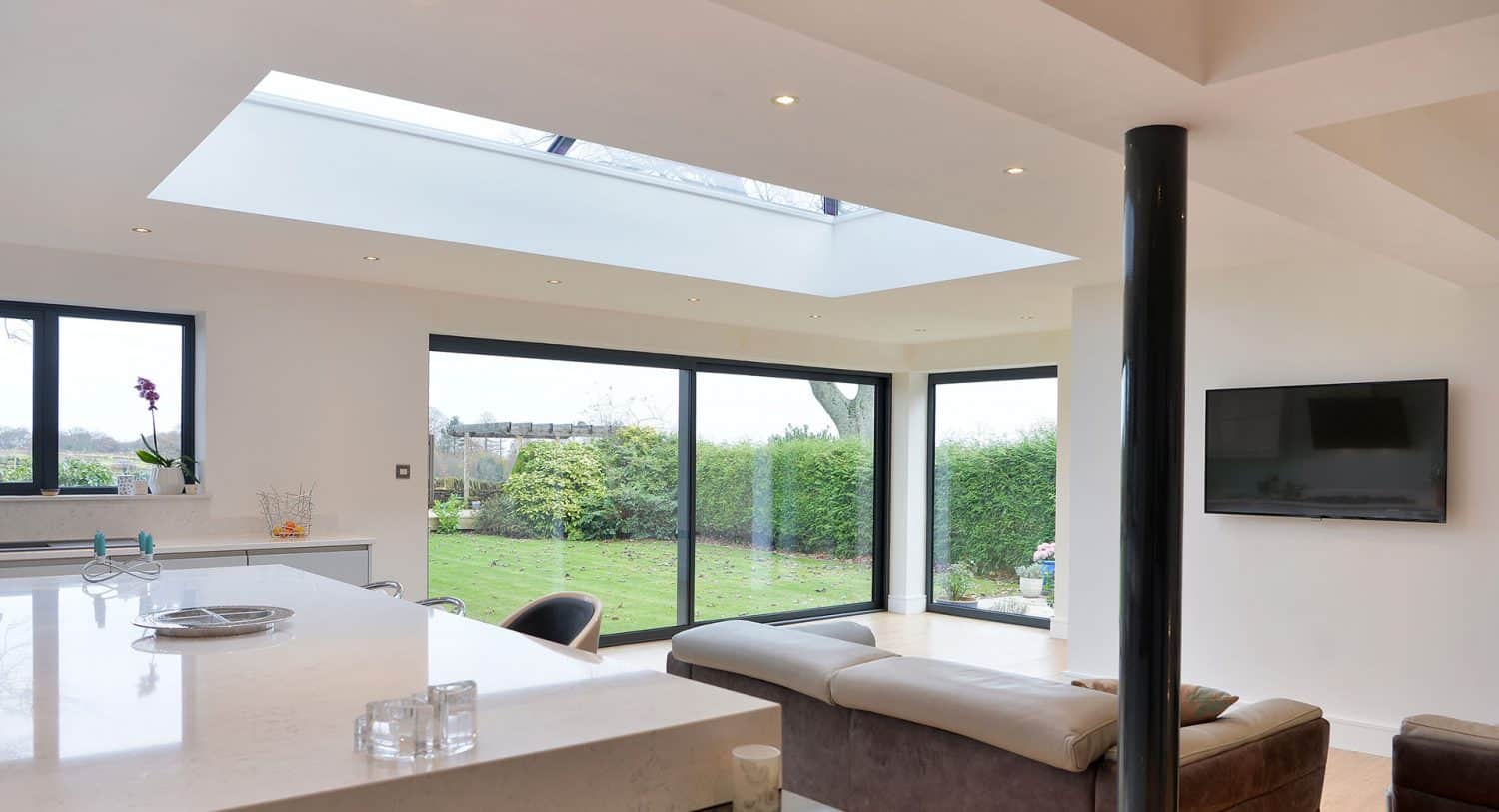
What is double glazing in homes?
As the name implies, a set of double-glazed windows consists of two glass panes that sit within a sealed glass unit within your window’s frame. However, rather than being stacked directly against one another, these panes are separated by a spacer bar, creating an air gap between the glass that acts as a thermal and noise cushion.
And it’s this cushion that provides double glazing with its unique properties and benefits, ensuring your home gets plenty of light while also retaining a stable internal temperature, no matter the weather outside.
How does double glazing work?
Although there is a lot of science that goes into understanding how double glazing works, the basic concept behind its premise is quite simple and relies mainly on how the aforementioned air gap reduces heat loss to maintain thermal efficiency.
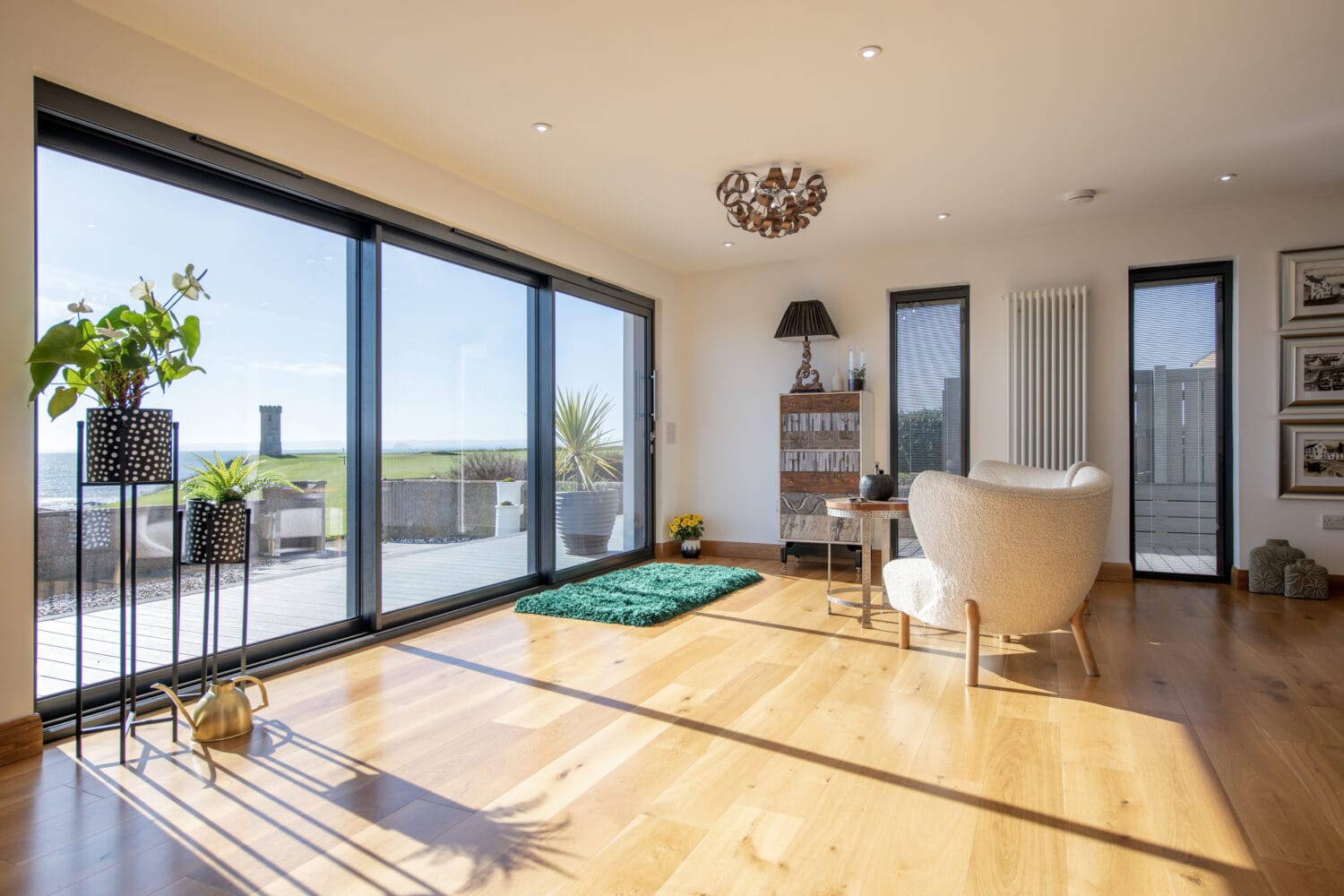
1. Single pane windows let out a lot of heat
One of the reasons homes with single glazing can be so cold is because glass on its own is an excellent conductor of heat. But while this might seem a good thing at first glance, what this actually means is that glass is terrible at retaining heat, allowing it to escape from your home to the outside.
2. An air gap is essential to reduce heat loss
Even with two adjacent panes, the effect of this heat loss would still be noticeable, however, with the addition of an air gap, this problem is eliminated almost entirely thanks to the cushion of gases separating the two panes.
This gas, typically argon or xenon, doesn’t conduct heat nearly as well as glass and therefore acts as a thermal buffer. This air gap is also entirely vacuum sealed, mitigating any outside air from entering and preventing air circulation, which makes it hard for hot and cold air particles to move across the space.
3. The design creates a separation between your home and the outside
In other words, cold air from the outside can’t cool down your window’s inside glass pane and vice versa, creating two distinct temperature zones between your home and its exterior that can’t interact with each other, meaning your home interior stays warmer for longer.
However, while this does mean that heat loss will be kept to a minimum, it’s important to remember that double glazing only slows thermal transfer – it does not eliminate it entirely. Eventually, with the heating left off, your home will cool, though this thermal dissipation will be very gradual and slow, which is why it makes such good insulation.
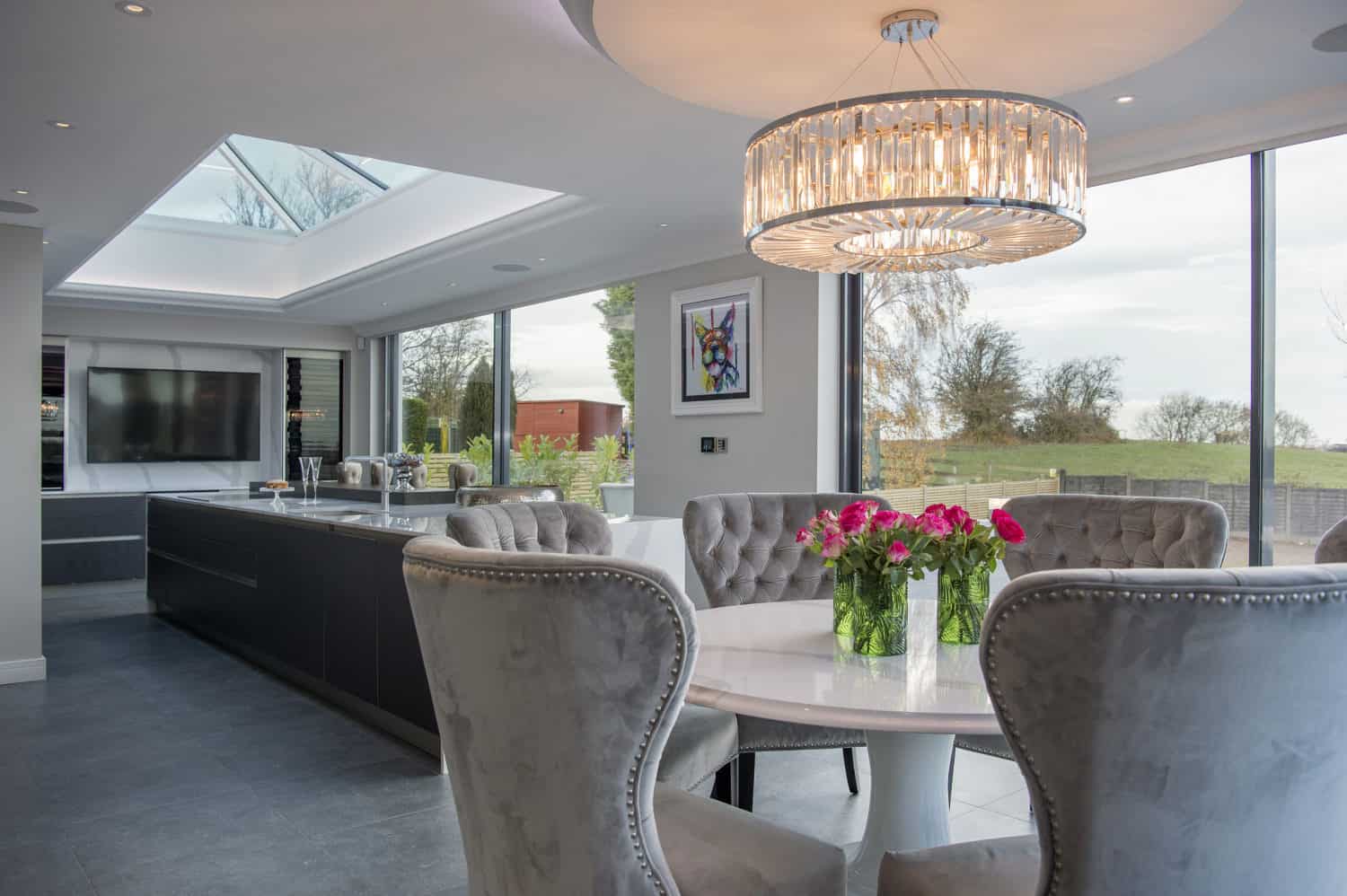
What are the benefits of double glazing?
As you’ve no doubt guessed already, there are several benefits associated with double glazing that makes it such a popular window feature, but there’s far more to this product than increased thermal efficiency in your home.
- Reduces the amount of outside noise that enters your home: Double glazing is excellent at reducing outside noise pollution. In the same way its air gap mitigates heat loss, the gases in this vacuum space also disrupt sound waves. Combine this with slightly different pane thicknesses and a see-through laminate layer and double glazing can reduce sounds by up to 40dB!
- Minimises the risk of condensation in your home: By preventing cold and hot air from meeting directly on your panes, double glazing can also minimise the potential for condensation on your inside windows, and any moisture that does form in this vacuum is absorbed by special crystals hidden within the spacing bar itself.
- It’s tougher than other window options: One of the lesser-known advantages of double glazing is that it’s much tougher than other window options. Two panes provide double the protection against impacts, and their slightly increase thickness makes shattering less likely.
Naturally, when you combine these three advantages on top of the excellent thermal efficiency of double glazing, you’re left with a product that can simultaneously reduce your energy bills while adding immense value to your home.
What are the disadvantages of double glazing?
While there are many benefits of double glazing that you should absolutely be taking advantage of, there is one distinct disadvantage that it’s helpful to know about, especially during installation.
While uncommon, if your double glazing is damaged or broken entirely either during installation, you will likely have to replace the entire glass unit, as the gas seal will almost certainly have been broken, preventing it from functioning correctly. The same will also be true if the seal fails at any point in the future after installation.

How long does double glazing last?
Provided you install quality windows, you can expect your double glazing unit to last a minimum of 20 years, though they could last upwards of 50 years with the right materials and care.
For example, here at Express Bifolds, we’d recommend choosing aluminium frame windows. As we note in our free brochure, not only is their frame highly durable and weather-resistant, but they also require minimal maintenance, ensuring your windows remain at peak functionality for decades to come.
And with that out of the way, you should now have all the information you need to start investing in double glazing for your home. Of course, if you’re unsure how to choose double glazing for your home, then why not get in touch with us today or visit us at one of our showrooms?
Our team of experts is ready and willing to show you our full product range, including our bespoke selection of our double-glazed sliding and bi-folding doors, as well as our glass roof systems, and answer any questions you may have. Don’t forget to browse the rest of our blog, too, for more insightful articles like this one.
